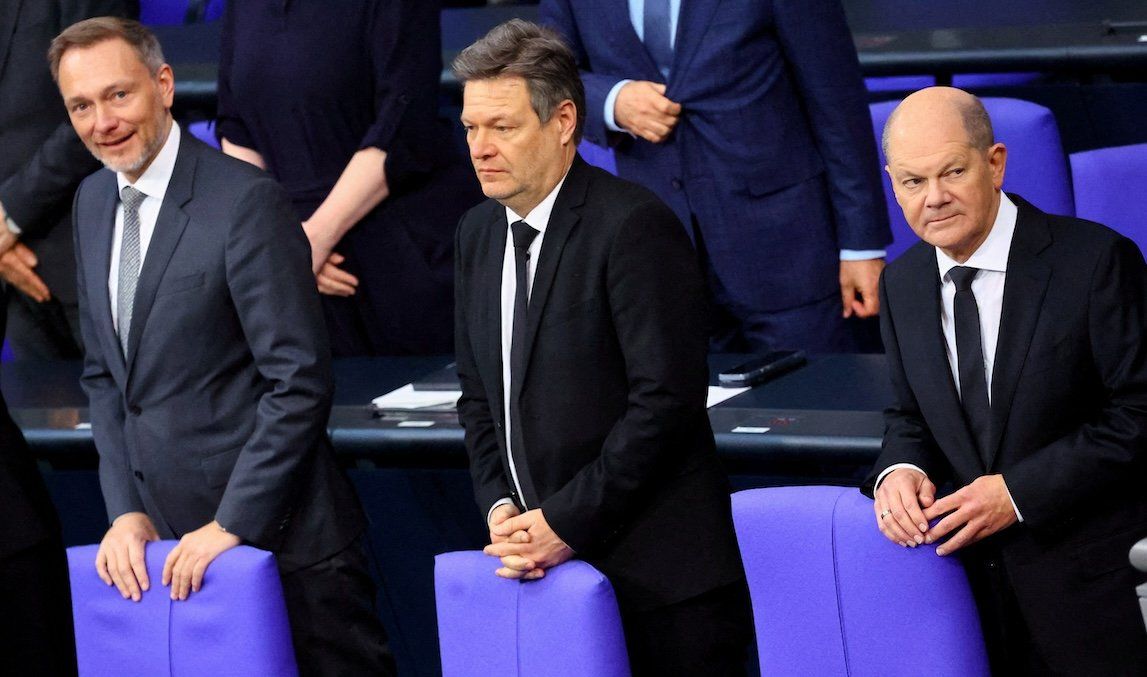An uncomfortable dynamic: Scholz held a summit on Tuesday to discuss Germany’s economic woes but didn’t even invite his finance minister, Christian Lindner of the Free Democrats, who decided to schedule a competing economic summit the same day.
“The three-party coalition is plagued by a lack of internal discipline, weak leadership by Chancellor Olaf Scholz, record-low approval ratings, and deteriorating trust between its leading figures,” says Jan Techau, a Berlin-based Europe expert at Eurasia Group.
Beyond the economic crisis, issues ranging from the rise of the far-right AfD to growing geopolitical pressures brought on by the war in Ukraine and a more assertive China have placed the German government in “a perfect storm situation,” says Techau.
Germany’s GDP grew in the third quarter, helping it avoid a recession, which Economy Minister Robert Habeck on Wednesday said offers a “ray of hope.”
But there are still concerns that the coalition could soon collapse, which would pave the way for snap elections in the spring. While the probability of an early vote has gone up, Techau says it’s still more likely that the government will complete its full term.
The coalition is held together by the “weakness” of the ruling parties and the fact that “early elections are likely to produce disastrous results for all three of them,” adds Techau.
The next general elections aren’t scheduled until Sept. 2025. We’ll be watching to see whether the German government can keep it together in the meantime.
